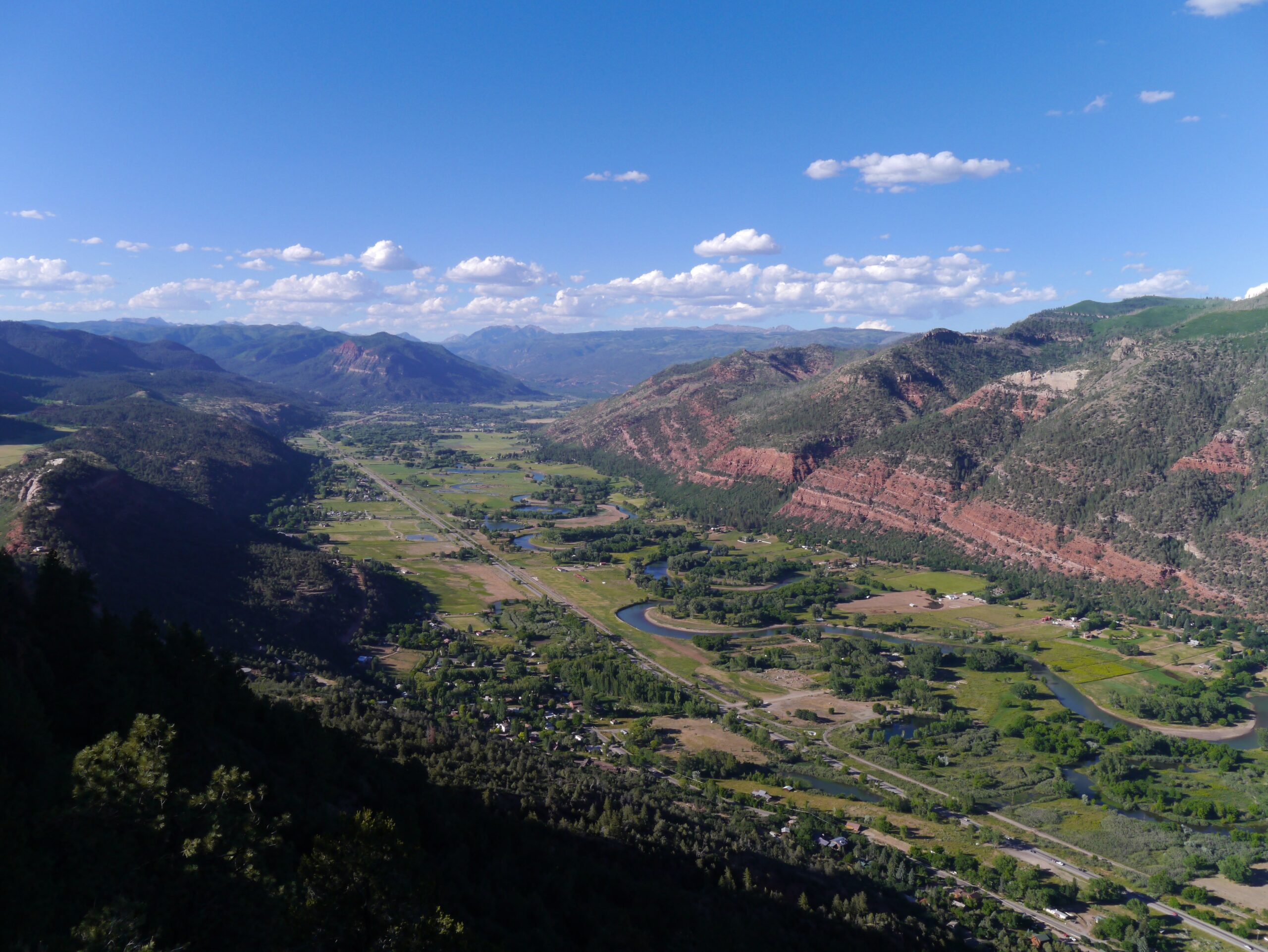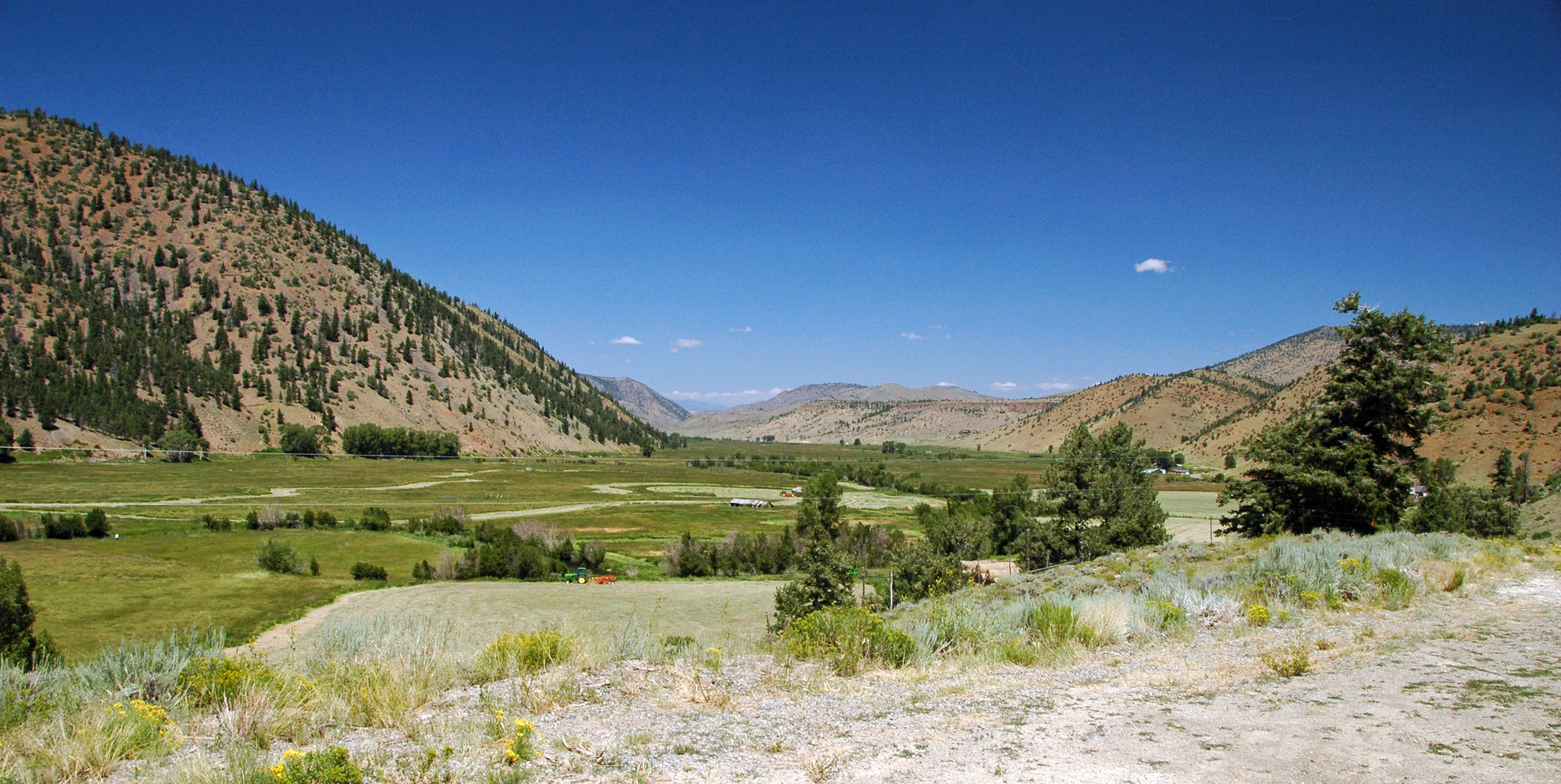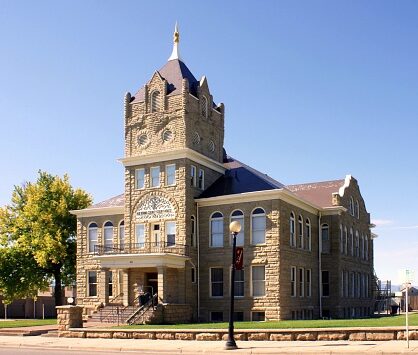- All Posts
- Building Climate Resiliency in Rural Colorado Communities
Building Climate Resiliency in Rural Colorado Communities
As the climate challenges we face continue to grow, we must act boldly and swiftly to find solutions and implement initiatives that will result in real transformation. The time is now to deliver the outcomes our communities need for resiliency. The climate crisis, coupled with increased systemic inequities, a vulnerable supply chain and perpetually high materials costs, has left those in more remote communities and likely, farther from resources, poised to suffer the most. Although clean energy efforts are accelerating across the country thanks to federal, state and local legislation, small and rural towns and municipalities face unique and pronounced challenges to implementation. Using our Action for Impact and Zero+framework as a guide, McKinstry is dedicated to identifying and partnering with under resourced communities to build comprehensive decarbonization plans and execute energy efficiency projects.
Barriers to Growing Small-Town Energy Efficiencies
Over the past several years there has been an influx of local and national clean energy legislation across the country. The Inflation Reduction Act’s (IRA) historic investment in decarbonizing the built environment means adopting and implementing bold climate policies and projects is more cost-effective than ever. However, as the clean energy economy booms, the disparities rural and small communities face remain. With fewer financial resources, smaller workforces with skilled crafts- and tradespeople, fewer legislative incentives, geographic isolation and awareness gaps, the barriers to building an energy efficient community are unique and potentially more challenging.
The Importance of Clean Energy in Rural Communities
For many rural towns, the hearts of their communities reside in the local infrastructure and historical facilities, from community centers and recreational spaces to courthouses and religious buildings. By prioritizing the revitalization of these impactful spaces through energy efficiency projects, municipalities not only build resiliency and ensure longevity, but their investment also demonstrates community stewardship and a dedication to preserving these integral community facilities.
Colorado Looking to Transform Statewide
Pursuing a zero-carbon future and implementing a statewide transition to clean energy are integral to preserving Colorado’s way of life. Climate change could impact Colorado in significant ways including, increased devastation from wildfires, greater likelihood of drought and flood, loss of high alpine ecosystems and negative impacts on tourist economies including the ski and recreational industries.
In May 2019, Governor Jared Polis enacted a roadmap to 100% Renewable Energy by 2040. In support of this effort, the Colorado Department of Local Affairs (DOLA) developed a local funding program called the Energy and Mineral Impact Assistance Program Grant (EIAF). Each year the grant awards $5 million in funding to assist rural local governments with financial and technical resources to promote sustainable development and to increase the livability and resiliency of communities through strategic investments in asset-building activities.
Four Rural Colorado Communities Eliminate Barriers and Implement Solutions
Leveraging DOLA’s EIAF, McKinstry partnered with four rural communities to develop customized energy efficiency projects that build climate resiliency, engage the community and stimulate the local economy. Each of the projects also contributes to the acceleration of Governor Polis’s goal of 100% renewable energy in Colorado by 2040. In addition to leveraging DOLA’s EIAF funding program, McKinstry will partner with each of the municipalities below to strategize, facilitate and secure applicable federal IRA Investment Tax Credits. Once project implementation and installation is complete, McKinstry will work with local government tax and financial advisors to maximize tax credits through the IRA’s direct pay program.
Basalt
Nestled along the south end of the White River National Forest, the Town of Basalt is a scenic mountain town with hiking, biking and fishing. In partnership with Roaring Fork School District, Basalt aimed to reduce greenhouse gas (GHG) emissions by 25% by 2025 and by 80% come 2050. In addition to GHG reduction, the town set its sights on improving its renewable energy portfolio with solar, battery storage and backup generation. Using solar as the primary vehicle to accomplish these goals, Basalt partnered with McKinstry to design and engineer five solar arrays at town facilities and local schools using a combination of EIAF funding, Energy Performance Contracting (EPC) and municipal funds. EIAF funds make this capital-intense project possible and shorten the payback from 30 to 15 years.

Durango
Located in the four corners region of Southwest Colorado, the city of Durango faced aging infrastructure, water conservation concerns and possible drought due to climate change. With so many competing priorities, McKinstry collaborated with the city to design several energy conservation measures and financial strategies to bundle capital-intense projects with energy efficiency solutions including HVAC and mechanical replacements, lighting upgrades and solar installations. With McKinstry serving as the city’s energy services company, Durango was awarded a $1 million RENEW grant through DOLA’s EIAF grant program, making the $7 million project 20% more affordable than pursuing each of the improvements independently.

Gunnison
With a rich history of ranching, agriculture, mining and outdoor recreation, the City of Gunnison is an exemplar of the Colorado spirit. As with many small communities, the city was challenged with significantly older buildings with operational inefficiencies. Its goals included reducing operating expenses, revitalizing aging facilities, enabling staff training and developing a plan for future growth in clean energy. Partnering with McKinstry on an innovative financing approach, the City of Gunnison was able to combine electric vehicle charging station grants, and the EIAF grant to implement 150 kW of solar PV systems, comprehensive LED lighting upgrades at local recreational fields, installation of electric vehicle chargers at the community center and improve occupant wellness through HVAC replacement and mechanical retrofits at city-owned facilities. The results reduced project paybacks from 42 to 13 years and have decreased the overall GHG emissions by 19.2%.

Huerfano County
Named for local landmark, Huerfano Butte, Huerfano County is one of Colorado’s original counties and is known as “Spanish Peaks Country.” In addition to building climate resiliency, the county hoped to utilize energy savings to improve aging buildings, develop its renewable energy portfolio, reduce maintenance challenges and decrease county-wide utility spending. The results of an investment grade audit (IGA) showed that a combination of capital-intense improvements and energy efficiency conservation measures including, LED lighting upgrades, solar installation, controls upgrades, mechanical retrofits and refurbishment could yield big annual savings. The county collaborated with McKinstry on an innovative financing strategy and the $2.4 million project included county capital, a $750,000 DOLA EIAF grant as well as one-time rebates on specific projects. The county’s energy use is expected to decrease by 18% once improvements are implemented through 2023 and 2024. Additionally, the implementation of solar at various facilities will offset electricity usage by 29%.

Transformation Boosts Community Engagement
In addition to utilizing unique financing strategies, three of the four municipalities leveraged McKinstry’s behavioral based powerED program designed to engage, inform and empower community members and stakeholders in the decarbonization process – a measure certain to maximize savings potential. For Huerfano County, the Cities of Gunnison and Durango, that meant using real-time solar data from McKinstry’s Reveal ™ dashboard and displaying it in highly visible spaces throughout the community. Doing so creates transparency, empowers participation and informs the community about decarbonization benefits, timelines and real-world impacts.
How Decarbonization Bolsters Rural Communities
McKinstry is dedicated to charting an equitable zero-carbon future. When our efforts to innovate waste and climate harm out of the built environment are geographically challenging, our standard commitment to leveraging local workforces, resources and materials becomes especially valuable. In collaboration with McKinstry experts, each of these rural projects prioritized the utilization of local craftspeople for installation and maintenance with over $5 million infused into Southern Colorado economies through clean energy jobs. Utilizing local craftspeople also ensures that maintenance and repairs are completed speedily and by experts with unique knowledge of the locale.
The coming months and years will bring about ever-expanding legislative action and clean energy efforts in every corner of our nation. The good news is, funding opportunities to support achieving these goals is also increasing, and significantly. This means projects are more cost-effective than ever and what once seemed impossible for our small-town communities is now possible.
McKinstry is committed to partnering with communities big and small to address their unique needs, remove barriers to more efficient and resilient buildings and ensure longevity of service to residents, employees and visitors.
Explore Other Insights

Optimizing ESG From the Field to the Boardroom
Building a thriving planet touches every aspect of our business By Joseph Hagar | President, Chief Financial…

McKinstry’s Kate Pearson on Implementing Building Efficiency
“When both the development team and the client achieve the same goals by saving money, saving energy and making build…

McKinstry’s David Ramsey on Renewable Energy Innovation
“One of my favorite parts of my job is presenting a solution to a client — that moment when they understand the oppor…